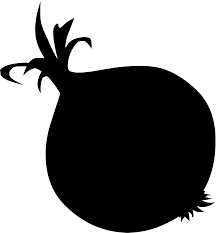The produce department is in a constant state of motion.
After all, the very design dictates that it doesn't have the inventory holding power of say, the canned goods aisle. Cans and boxes, easily endure an entire day of shopping traffic without “wilting.” Nobody, except maybe the person assigning labor hours, wants a “set it and forget it” produce department.

It's important to remember produce personnel are more than just apple stackers.
Unlike the out-of-sight night grocery stocker, the produce clerk is often the store's customer ambassador. That apron is like a beacon for consumers needing assistance. Produce clerks are the highly-visible employees and are in best position to interact. It's no secret why Wal-Mart Stores Inc. started having clerks wear vests that say “How May I Help You?”
While some imprudent produce managers may feel providing extra services (besides stocking) may slow productivity, friendly and knowledgeable produce clerks can indeed make a difference where customers choose to shop. Providing these “extra” services is equally as important as a clean department and providing high-quality produce.
So what should a produce professional be prepared to do?
Sales Floor Assistance
Most of the time customers look to produce clerks on the sales floor for basic direction, and this can come in a myriad of forms: Where can I find the limes? When are pomegranates in season? The pineapple is kind of green, are they ripe? Why are these dried morel mushrooms so expensive? I'm supposed to make pico de gallo for a get-together, what items will I need? Can you cut this cabbage in half for me? Yellow watermelon – what does that taste like? What's the difference between regular and flat-leaf parsley? The questions never end. Be prepared with answers.
Customer-facing personnel, especially need to be friendly, upbeat and helpful. Responding to customers' questions, it should be taught, is not an interruption of daily tasks, but an integral part of a store's success. Produce clerks should be trained to give a customer their full attention. Then, the clerks should take as much time as necessary to help the customer, to explain how to select an item or to offer a sample. If the clerk doesn't know an answer to a customer's question, she or he should explain that as well, and promptly ask another clerk or the produce manager to address the issue.
As clerks or produces manager progress in their skills, they should always be on the lookout for the customer who obviously hesitates in front of a display. This is a sure sign that they have a question in mind, but, like most customers, are afraid to say something. Intervene and say something like, “Hi, you look like you have a question …” or perhaps, “Those grapefruit are the first of the winter season – can I help show you what to look for with citrus?” A manager should always teach their employees to be sincere and genuine in their demeanor and say things like, “Of course I'll help …You're not bothering me! That's what I'm here for!” Of course clerks need to be aware of their stocking duties, their time and priorities and keep conversations to a reasonable length of time, but they should always be on the lookout to assist customers in need.
Front End Assistance
The front-end assistance call takes clerks out of their element. Customers backed up in line may be in for a longer wait when a cashier has to wait for a produce clerk. Oftentimes the call turns out to be a request for a replacement produce item. “This cantaloupe fell and cracked open, can you bring up another one?”
The better way — and one to mentor with your front-end supervisors — is to call with specifics, so the clerk takes a replacement melon instead of making two trips. Keep a small notepad in your pocket to write down details in case you need to forward notes to the produce manager or keep for reference. When a customer sees that it's important enough for you to write down, they are more likely trust that you will follow through with their request.
Phone Assistance/Etiquette
Inbound produce phone calls aren't as frequent as what the pharmacy or the floral department receives. However, you should train your clerks to be as courteous and helpful on the phone as they would be in person. When a call for produce assistance is paged, answer it promptly. Keep a notepad handy and, if need be, take down pertinent information and ask for a name and return phone number. Most phone calls are for general topics such as if you have something in stock, the price of an item, or an order for something special, like a fruit basket.
General Store Assistance
Customers don't necessarily see produce clerks on the sales floor, only store employees. Clerks should always be willing to help a customer no matter what the request, and never say, “I'm sorry, that's not my department.” One tip to keep produce clerks from wandering too far away is to have them carry a printed store directory in their pocket to steer customers in the right direction.
Combining great quality produce with superb customer service is key to repeat business, maximizing sales and generating gross profit. In the customer's eyes, the produce clerks are on stage.













